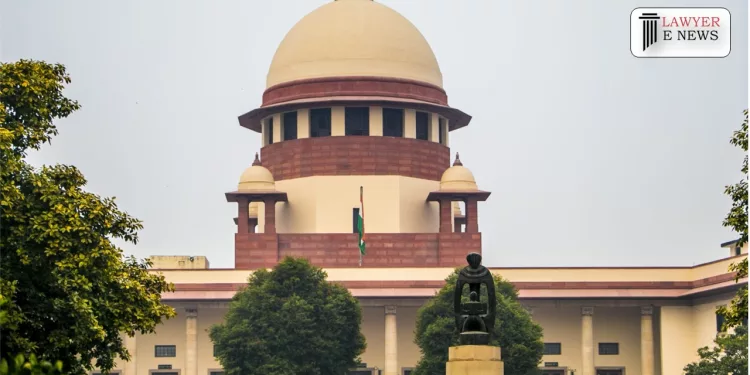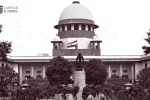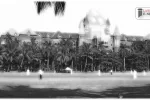Admission of Will: No Categorical Admission Found – Matter Remitted Back: Supreme Court

In a groundbreaking judgment, the Supreme Court of India delivered a ruling on October 10, 2023, addressing a contentious issue of admission of a Will in a partition suit. The judgment, arising from a partition suit (O.S. No. 701/2021), brings clarity to the legal landscape concerning the existence and validity of a Will.
The core contention revolved around the Will dated 18.11.1999, with Defendant Nos. 4 and 5 asserting its existence, while Plaintiffs and Defendant No. 1 and 2 categorically denied it. The plaintiffs and the latter defendants contended that the Will was neither valid nor binding, leading to a dispute over the division of the suit property.
The key takeaway from the judgment is encapsulated in the headnotes: “Admission of Will: ‘No Categorical Admission Found.'” The court’s meticulous analysis revealed that there was no unequivocal and absolute admission regarding the Will. While Defendant No. 4’s statements were viewed as statements in continuation of their pleadings, they did not amount to an admission of the plaintiffs’ case. This finding led to the conclusion that the suit raised significant triable issues both in fact and law.
The judgment emphasized critical questions surrounding testamentary succession versus intestate succession and the validity of the contested Will. It underscored the need for comprehensive adjudication in partition suits, aiming to avoid protracted litigation and promote the timely resolution of disputes.
Notably, the bench also addressed the authorization for the sale of the suit property, considering the age of the parties involved, and laid down specific directions for the sale process. The court authorized the sale without the necessity of a Preliminary Decree under Section 2 of the Partition Act, 1893, and delineated the roles and responsibilities of the Local Commissioner in charge of the sale.
The Local Commissioner’s fees were fixed at Rs. 5,00,000/- with provisions for apportionment among the parties. The judgment stressed the importance of the parties’ cooperation in facilitating the sale and the speedy resolution of the matter.
The division bench, cognizant of the age of the contesting parties, urged the Learned Single Judge, who would now preside over the case on remand, to expedite the proceedings and complete the trial within four months from the receipt of the judgment.
In a final note, the judgment declared the impugned judgments, rendered on admission, as erroneous and set them aside. The matter was remitted to the Learned Single Judge for framing issues and conducting a fair trial, emphasizing the need for comprehensive adjudication in partition suits.
While this judgment provides clarity on the admission of a Will in a partition suit, it also underscores the importance of timely resolution and comprehensive adjudication in complex legal disputes.
The parties involved are now poised to proceed with the trial, aiming for a just and equitable resolution of their claims and counterclaims. This landmark decision by the Supreme Court sets a significant precedent in the realm of partition suits and the admission of Wills.
Date of Decision: October 10, 2023
VIKRANT KAPILA AND ANOTHER vs PANKAJA PANDA AND OTHERS






